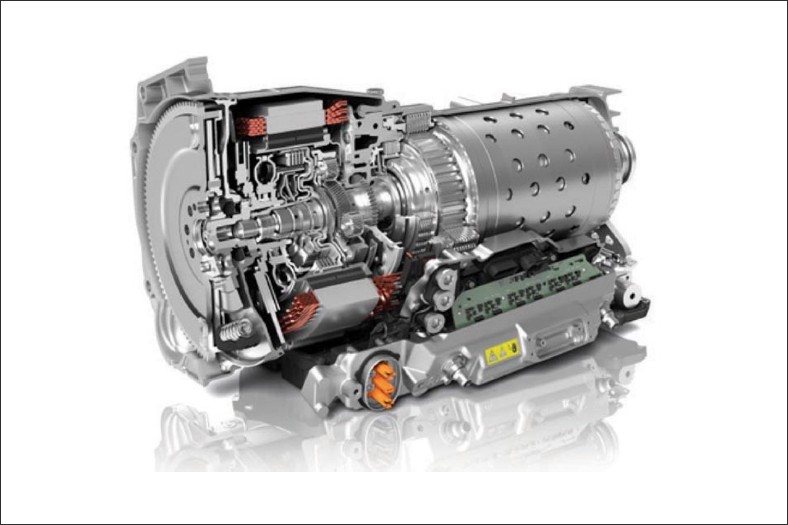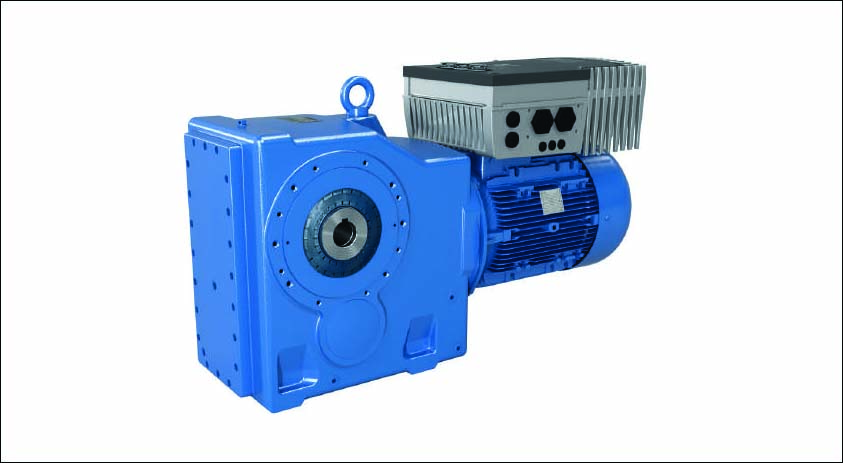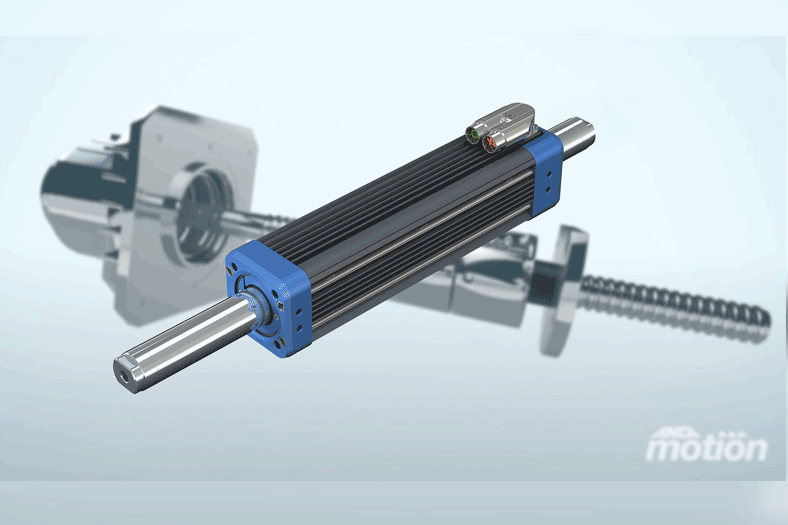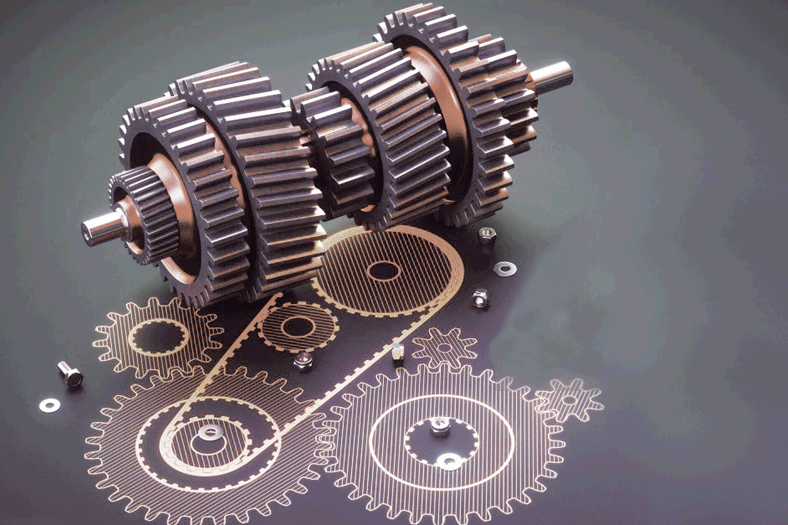Gear Design Shift in Acceleration Mode
February 9, 2022 6:42 pm
Automotive OEMs are adopting advanced systems, such as automated manual transmission with minimised fuel consumption and CO2 emissions without compromising on performance.
The economy worldwide witnessed a massive setback due to pandemic, thus negatively impacting automobile production. The pandemic aftermath resulted in supply chain disruptions with several production facilities coming to a halt. Moreover, it has taken a toll on passenger and commercial vehicle sales, subsequently impacting the demand for automotive transmission. Growing demand for lower carbon emissions is driving the automotive transmission system market.
This article focuses on gears, investigating the many varieties, and discussing their roles and operations. Gears, the toothed mechanical transmission elements used to convey motion and power between machine components preventing slippage during the transmission process.
Automobile component manufacturers in the industry are striving to provide cost-efficient solutions without compromising on vehicle performance. They are implementing numerous growth strategies to meet the increasing demand for transmission systems across the automobile industry.
Latest automotive transmission system enhances the driving experience in terms of improved acceleration, gear shifting and improves fuel efficiency over conventional manual transmission systems. Transmission systems used in vehicles are hydraulic transmissions which use a kind of fluid coupling instead of friction clutch, and change gears by locking and unlocking a system of planetary gears. The automotive transmission system provides a controlled application of the power which is generated from the engine of the vehicle. The transmission system uses gear trains and gears to provide torque and speed conversions from a rotating power source to another device. By vehicle type, the passenger cars segment accounted for the largest market share in the global automotive transmission market. Light commercial vehicles and heavy commercial vehicles followed passenger cars in this segment. Innovation of latest transmission technology in passenger cars from simpler four speed automatic transmissions to 8-speed and 9-speed transmission is enhancing the driving experience, comfort and fuel efficiency of the vehicle.
The variants with automatic transmission being costlier than manual transmissions and low penetration of advanced transmission systems in regional markets like India, Brazil, and Mexico is restraining the automotive transmission system market. Growing demand for advanced transmission systems in the entry level vehicle segment is expected to drive the market.
Most of the automotive OEMs have their established manufacturing facilities in China due to macro factors, low cost of labour and to cater to the high demand from the automotive sector in this region. Asia Pacific leads the global automotive transmission market, and is both the largest producer and the biggest transmission market in terms of value due to the presence of countries like China, India, South Korea and Japan. Asia Pacific is followed by Europe dominated by manual transmission in the global automotive transmission market.
Automatic transmission technologies
Hybrid drives gain quick acceptance while reducing vehicle CO2 emissions in market segments where electrification cannot be fully implemented immediately. ZF estimates that at least 70 percent of all new vehicles in 2030 will still have an internal combustion engine. Nevertheless, a plug-in hybrid drive could considerably lower the engine‘s CO2 emissions. This is contingent on electric range and electric power, both of which must allow for driving in everyday traffic with battery power only. With a new, significantly smaller hydraulic control unit, ZF has created the required installation space for the electric and electronic components.
Automobile manufacturers developing different kinds of automatic transmissions is becoming trendy. Many auto manufacturers are introducing Intelligent Manual Transmission (IMT) that allows drivers to work the gears without clutch depressing. Automotive OEMs are adopting advanced systems, such as Automated Manual Transmission, with minimised fuel consumption and CO2 emissions without compromising on performance.
Mr. Sandeep Frank, Senior Manager, Marketing and Business Development, Alpha Drives says, the Power-Take-Off (PTOs) are today now part of our day-to-day application that we can see all around us such our garbage trucks, cranes, and sanitizer trucks. Hyundai and Kia are the only manufacturers offering IMT gearboxes. It gets a normal gear stick but there is no clutch pedal. There are sensors built into the gear lever that senses the pressure from the hand of the driver and engage the clutch Technology advancement in automotive transmission.
The technological advances in manufacturing are expected to boost the market growth. In addition, the increasing adoption of Continuously Variable Transmission (CVT) and Dual Clutch Transmission (DCT) technologies over manual and automatic systems, owing to the shift in demand for fuel-efficient products with increased performance, is anticipated to drive the market. Manufacturers in the industry are required to abide by stringent regulations.
CVT automatic transmission uses a pulley and a belt so realistically there is an infinite number of gears depending on the speed and throttle input. And, the ride of a vehicle with CVT automatic gearboxes is very smooth. Dual-clutch automatic transmissions use two clutches for alternate gears of which one gear is engaged and the other one is already selected in advance making gear shifts are instant. This provides quick accelerations and the drive is also very smooth.
The pandemic has negatively impacted the automobile industry, leading to sluggish growth of the automotive transmission market as a result of declined automotive sales or new requirements. The global automotive transmission market size was valued at USD 152.32 billion in 2020 and is expected to grow at a CAGR of 5.2 percent from 2021 to 2028.
On the other hand, technological advancements and the evolution of transmission systems as per performance requirements across several vehicle types, including Heavy Commercial Vehicles and passenger cars, are expected to drive the market growth over the forecast period. Asia is to remain at the epicentre of the automotive transmission system market, the growth accounting for over 35 percent of sales through 2031.
Fluid coupling
Hydraulic coupling or say, fluid coupling is a hydrodynamic instrument that utilises transmission fluid to transmit rotational motion from one shaft to another. It is employed in automobile transmission systems, marine propulsion systems, and a variety of industrial applications, and is used in lieu of a mechanical clutch.
Applications of Fluid Coupling find use in the automobile industry in place of the clutch to transmit energy from the motor to the wheels. It is a propellant material used in maritime propulsion systems. And, it is utilised to transmit energy in a variety of Industrial sectors for applications like centrifugal fans, centrifugal pumps, conveyors, crushers, ball mills, mixers, etc.
Gear motor market scenario
Since each gear or toothed component is attached to a machine shaft or base component, when the driving gear rotates with its shaft component, the driven gear rotates or translates with it. The transmission of motion between the driving shaft and the driven shaft might result in a change in the direction of rotation or movement, depending on the design and construction of the gear pair.
Mr. Manish Bhatnagar, Managing Director, SKF India says, Government approves the PLI scheme for the auto sector. The Gear Motor market is expected to grow at 5.8 percent CAGR and is expected to grow and develop rapidly during the estimated time frame due to growing investments, growing concerns regarding the performance and cost effectiveness of mechanical power transmission technologies.
The global gear motor market is overwhelmed by helical gear motors and followed by gear engines with helical-worm and the gear unit, empowering speed changes to be made with wide ranges. The normal application spaces of Gear Motor incorporate home electrical machines. These applications incorporate control handles in washer and dryer machines, can openers, morning timers, and carport entryways, among others.
The major factors like a measured and minimal plan, mechanical straightforwardness, and developing sustainable power areas would drive the global Gear Motor market. The Gear Motor discovers its applications in an assortment of an end-client segment. Additionally, Gear Motor is likewise utilised in sustainable power areas, particularly in the area that can additionally be ascribed to expanding wind power establishments.
For example, the wind segment overwhelms the market as numerous seaward turbines are being introduced to expand energy interest. This load of elements will drive the establishment of Gear Motor in the inexhaustible application region, accordingly decidedly setting off the global market.
Gear motor design characteristics
Gear Motor electrical hardware is used to create high force at low speed engine yield. These gear engines are mainly a large blend of the engine and a reduction gear train. And the gear reduction reduces the motor speed through expansion in force to a gear extent. Besides, Helical Gear Motor, shaft mounted Gear Motor, slope equipped engine, worm gear engine and Rack and pinion, the planetary gearbox is perfect for its durability, accuracy, and unique functionality, and it is famous for its precise applications. Using a gearbox like this extends the life of your machinery while also improving performance. Planetary gearboxes may be mounted on a flange, a shaft, or a foot, or they can be solid or hollow.
Gearbox devices made up of gears housed within an enclosure or housing, are one of the most common applications for gears. These devices, such as worm gears, bevel gears, helical gears, and spur gears, are designed to perform a specific motion or power transmission operation inside the machine system, such as altering the speed and torque or changing the direction of the output shaft. Gearboxes, like most gear systems, have a range of applications, such as Conveyors, Agitators, Ball Mills, etc. Mr. Amit Deokule Sr. GM-Sales & Marketing, Nord Drivesystems Pvt. Nord offers its customers exceptional potential for energy saving through the combination of energy optimised motors and high efficiency gear units.
The gears are used in a wide range of mechanical devices, and several types and designs are available. The suitability of each type of gear and its exact design for a motion or power transmission application is determined by the application’s specifications and requirements. Gears the mechanical devices are utilised in a wide range of mechanical equipment and systems. Industrial gearboxes, the robust equipment can resist high temperatures, pressures, and abrasive environments. Unfortunately, due to their longevity, many individuals take their gearboxes for granted. Ignoring minor concerns might have disastrous consequences.
The gear ratios represented by devices and systems that use circular gears are consistent, both for rotary speed and torque. Devices and systems that use non-circular gears, on the other hand, have changeable speed and torque ratios. Variable speed and torque allow non-circular gears to meet specific or irregular motion requirements such as alternatively increasing and reducing output speed, multi speed, and reversing motion. Furthermore, linear gears, such as gear racks, can convert the rotational motion of the driving gear into translational motion of the driving gear.
Some of the most important variables to consider while developing and selecting a piece of equipment are operational and environmental conditions, dimensional restrictions, transmission requirements, design standards and costs.
Application of different types of gears
The transmission of mechanical energy takes place inside the confines of an enclosure in industrial gearboxes. There are several types of gears available and used in a variety of household, commercial, and industrial applications, including aircrafts, automobiles, clocks, marine systems, material handling equipment, measuring instrumentation, power plants and pumps. The transmission of mechanical energy takes place inside the confines of an enclosure in industrial gearboxes. The speed, torque, and other characteristics of a gearbox may be altered to better use the incoming energy. With so many applications, gearboxes may be found in many different devices. The torque and speed of these machines may be increased by slowing down the rotational speed. Keep regular checks for malfunctioning gearbox for noise, cracks, oil spills, overheating for smoke emitting from shafts and seals and temperature of fluid etc., as factors like cost, time, accessibility, and skilled people may restrict the scope of the inspection.
Future perspective
Conclusively, Asia is to remain at the epicentre of the automotive transmission system market and market reaching around US$ 70.2 bn by 2031. With new technological innovations automotive transmission space will continue to witness an increase in the number of gears and variation in ratios for improving transfer of power to the wheels from the engine.
Increase in demand for comfort, fuel efficiency and stringent emission norms are expected to drive the automotive transmission market. The major drivers of this market are the enhanced driving experience in terms of smooth gear shifting and improved acceleration that has contributed to a rise in vehicle production across developing nations like China, India and Brazil. Furthermore, manufacturers are continuously innovating their products to comply with the stringent emission control regulations and improve the consumer experience.
Compiled through sources:
Cookie Consent
We use cookies to personalize your experience. By continuing to visit this website you agree to our Terms & Conditions, Privacy Policy and Cookie Policy.








